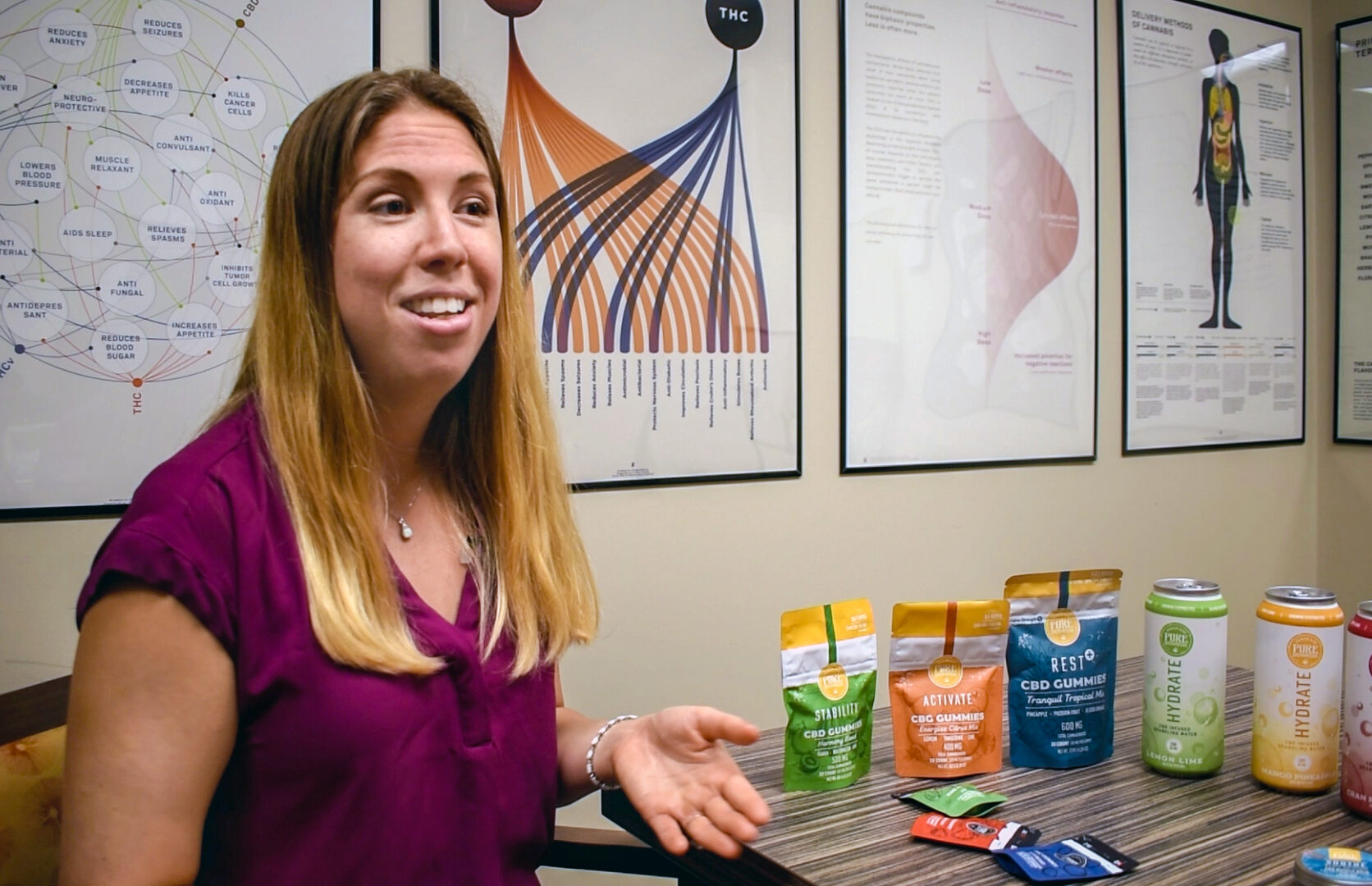Increased legalization of recreational cannabis use—now allowed by 24 states and the District of Columbia—coupled with decreased stigma is contributing to the growing numbers of Americans aged 65 and above trying cannabis, in many cases as remedies for sleep problems, pain, anxiety, or other health issues. Cannabinoids found in hemp and FDA-approved synthetic THC are also being studied for their mitigating effect on agitation in people living with dementia.
Responding to residents’ growing interest in cannabis-based products, LeadingAge member Westminster-Canterbury on Chesapeake Bay, Virginia Beach, VA, created Cannability Consulting, a subsidiary devoted to client education and supply of legal, hemp-based consumables. Launched in June 2023, its approach is founded on the academic work of Alexandria Hill, Westminster-Canterbury’s director of quality management, who studied the therapeutic benefits of cannabis-derived products such as cannabidiol (CBD) to treat common conditions and improve quality of life for older adults, while working toward her doctorate in nursing.
Cannability Consulting now has more than 180 active clients, including residents in independent living, hospice, and assisted living, says Westminster-Canterbury Senior Vice President of Health and Innovation Victoria Crenshaw. Also on the client list are team members, people from outside of the community, and residents from other life plan communities. The company also has three institutional customers: other senior living organizations whose residents can access the service. Crenshaw expects at least 30% growth in the next year.
Even prior to this recent surge in legal cannabis use, attributable to the passage of the 2018 Farm Bill, which legalized hemp-derived cannabis, coupled with changes in state laws, some nursing home providers have explored legal marijuana use by residents for medicinal purposes. LeadingAge member Hebrew Home at Riverdale, for instance, conducted research underpinning its formal medical marijuana policy adopted in 2016.
Legal, Transparent, and Cautious
Cannability Consulting offers only hemp-derived products, all legal and compliant with federal standards. Crenshaw says the organization also follows Virginia Department of Agriculture regulations, which include a checklist of approved products. “If the product is not on their checklist,” she says, “we send them a [sample] of the product and all the batch numbers and the testing and ask them to review it.”
A client’s initial appointment will include an intake evaluation with a nurse who will gather the client’s health history, risk factors, list of current medications, and have a conversation about goals. A follow-up visit will offer options to the client, and there are later check-ins after the beginning of use. No prescriptions are required.
Westminster-Canterbury President and CEO Ben Unkle says Cannability Consulting doesn’t dispense anything containing levels of THC (the cannabinoid with psychoactive effects) above what the federal government allows. CBD helps mitigate the psychotropic effects of THC, so most therapeutic products feature more CBD than THC. The organization’s data shows that 87% of its clients are using products that have THC levels below the CDB levels. The others use products with THC levels equal to the CDB (4.8% of clients), or higher than the CBD (8.5% of clients).
Crenshaw says the philosophy is cautious: “We start low [in dosage], we stay low, and then if we need to increase the amount of product based on outcomes for the individual, we can increase it.” The products come in several forms: gummies, a tincture that goes under the tongue, drinks, topicals, and capsules.
Cannability Consulting works only with three suppliers, in Virginia, Oregon, and Hawaii, to ensure clients are linked to “reliable suppliers who laboratory test and sample and [supply] lot and batch numbers, so you’re getting what’s on the labels,” Unkle says, noting that there are many widely available CBD products on the market that don’t contain what they claim to.
Clients, Crenshaw adds, are encouraged to review recommendations with their own physicians and family members. Cannability Consulting sends information about product choices to doctors if requested. Many physicians, she says, “are referring directly to us” and the physician at one hospice provider, for instance, is in frequent contact. She says each client’s list of medications is cross-checked with two online drug interaction databases.
Converts After Initial Skepticism
A strong benefit of some CBD products is that they can replace or reduce the need for anxiety medications like Ativan, antipsychotics such as Haldol or Seroquel, pain medications such as Oxycodone, or anticonvulsants such as Gabapentin. “The hospice feedback has been amazing,” Crenshaw adds, “focusing on intractable nausea, vomiting, pain, and terminal agitation. They’re using this in lieu of a comfort pack in many cases.”
Unkle believes the potential for reduction of other medications is a key message for the senior living field. “Star ratings and appropriate regulatory pressure exists on psychotropics. This is a way to really impact your Star rating [by] exploring these alternate therapies.” He also notes that both of his parents live at Westminster-Canterbury, and “both are converts after initial skepticism … and saw significant improvement to different age-related conditions.”
Unkle adds: “I’m sure there are some residents who don’t tell us this but they still don’t trust it enough to try … some do not trust anything that’s got the name cannabis. But word of mouth is getting out about the better sleep, the lower daily pain, and dumping other medications.”
Says Crenshaw, “We especially get feedback about a population living with dementia—people who have had issues with aggression both physical and verbal towards others, and this has really been an improvement in their quality of life. We’ve seen improvement in engagement, less agitation, better appetite, and they’re more relaxed.”
Photo: Alexandria Hill, director of quality management for LeadingAge member Westminster-Canterbury on Chesapeake Bay and chief nursing officer for its subsidiary, Cannability Consulting, shares details about the CBD-based products available to older adult clients. Photo courtesy of Cannability Consulting.
Do you have a story of innovation to tell? Use the LeadingAge Story Collector, powered by Greystone, to tell us your best new ideas in operations, technology, workforce development, service delivery, partnerships, and more. Try it now.

 Shutdown Week Three: Impact of Ongoing Closure on Affordable Housing
Shutdown Week Three: Impact of Ongoing Closure on Affordable Housing HUD Streamlines Section 202 PRAC Budget Approvals
HUD Streamlines Section 202 PRAC Budget Approvals


